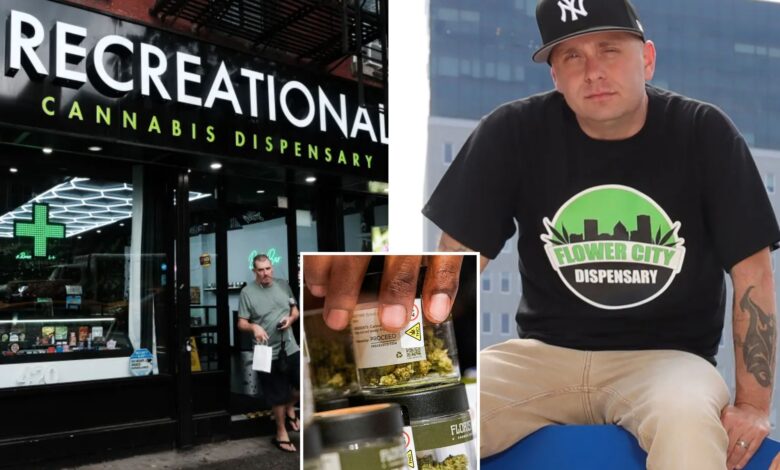Legal NY weed sellers want 1,000-foot buffer zone to stay, poll shows

An overwhelming number of legal-pot-shop owners and licensees oppose loosening the buffer zone that bars cannabis stores from being located within 1,000 feet of each other, according to an industry poll.
The survey, conducted by the 300-member New York Cannabis Retail Association, found that 94% of respondents objected to changing the “proximity protection” rule.
The state Cannabis Control Board is considering offering waivers to the 1,000 feet rule for municipalities with more than 20,000 residents and the 2,000-foot buffer for towns with less population.
“The numbers speak for themselves. Our market is way too fragile to change the proximity protection rules,” said Jayson Tantalo, vice president of operations for the Retail Cannabis Association.
“Why do it now? We’re in the infant stages of the market. And there’s still a crazy amount of illegal shops. It should be a message for state regulators,” he said of the poll.
Tantalo and his wife, Britni, said they spent tens of thousands of dollars on rent while awaiting a license to open their cannabis dispensary, Flower City Dispensary in Victor near Rochester.
Tantalo said he heard cannabis regulators want to relax the buffer zone from 1,000 feet to 750 feet and from 2,000 to 1,750 feet in smaller towns.
“Our members do not want change. It throws instability in the market. There should not be any exceptions at all,” he said.
An analysis of the survey’s findings said, “NYCRA members strongly support the existing standards for considering proximity protection exemptions.
“If changes to the existing regulations are to be implemented, NYCRA members want additional regulatory guardrails in place to ensure that such exemptions do not render their businesses economically unsustainable.”
Many New York City lawmakers also oppose any deviation from the distance rule, arguing there are still too many illegal pot shops and that they don’t want even legal cannabis stores saturating their neighborhoods.
“They must be stoned,” Queens city Councilman Robert Holden recently told The Post — only half in jest — referring to cannabis regulators’ plan to potentially allow the proliferation of shops.
Some licensed operators have threatened to sue the state if it relaxes the distance requirement.
The battle comes as a judge recently issued a ruling that could allow scores of suspected unlicensed stores peddling pot to reopen, claiming the city’s cannabis cops did not properly follow procedure when padlocking them.
Gov. Kathy Hochul had approved a stricter law earlier this year to make it easier for authorities to close illegal shops and make way for legal operators, while Mayor Eric Adams launched “Operation Padlock to Protect” to shut down unlicensed pot peddlers.
There are now 164 licensed cannabis dispensaries in the Empire State, with about half of them located in the city and Long Island — and scores more illegal sites.




